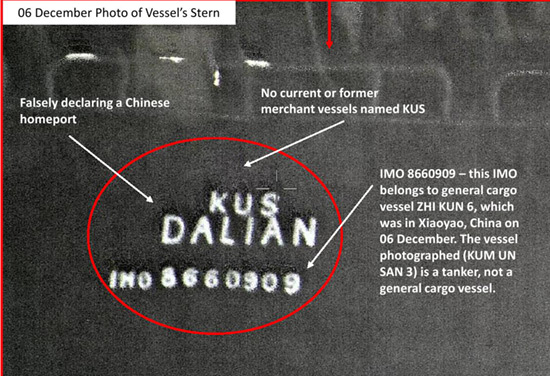![The House of Leaves - Burning 4 by Learning Lark [CC-BY-SA-2.0 (http://creativecommons.org/licenses/by-sa/2.0)], via Flickr https://flic.kr/p/7iW4zL [cropped] The House of Leaves - Burning 4 by Learning Lark [CC-BY-SA-2.0 (http://creativecommons.org/licenses/by-sa/2.0)], via Flickr https://flic.kr/p/7iW4zL [cropped]](https://www.exportlawblog.com/images/book_burning.jpg) On March 5, the Office of Foreign Assets Control (“OFAC”) released a completely revised and revamped version of the North Korea Sanctions Regulations. The intent of the revision was to catch up with Executive Orders 13687, 13722, and 13810, as well as with the North Korea Sanctions and Policy Enhancement Act of 2016 and Title III of the Countering America’s Adversaries Through Sanctions Act, all of which came into force since the regulations were originally promulgated in 2010.
On March 5, the Office of Foreign Assets Control (“OFAC”) released a completely revised and revamped version of the North Korea Sanctions Regulations. The intent of the revision was to catch up with Executive Orders 13687, 13722, and 13810, as well as with the North Korea Sanctions and Policy Enhancement Act of 2016 and Title III of the Countering America’s Adversaries Through Sanctions Act, all of which came into force since the regulations were originally promulgated in 2010.
Not surprisingly, OFAC continues its war on the Congressionally mandated travel and information exemptions in 50 U.S.C. § 1702(b)(3) and (4), apparently worried that someone might give a copy of the Declaration of Independence or The Federalist Papers to a Nork SDN. Section 510.213 of the new regulations contains the normal travel and informational materials exemptions but section 510.213(a) says this:
(a) United Nations Participation Act. The exemptions described in this section do not apply to transactions involving property or interests in property of persons whose property and interests in property are blocked pursuant to the authority of the United Nations Participation Act, as amended (22 U.S.C. 287c(b)) (UNPA).
And the note to that section says this:
Persons whose property and interests in property are blocked pursuant to the authority of the UNPA include those listed on both OFAC’s Specially Designated Nationals and Blocked Persons List (SDN List) and the Consolidated United Nations Security Council Sanctions List (see https://www.un.org) as well as persons listed on the SDN List for being owned or controlled by, or acting for or on behalf of, such persons.
Of course, to add extra unnecessary confusion, the introductory text to the new rules in the Federal Register says this:
The exemptions described in this section do not apply to any transactions involving property or interests in property of certain persons whose property and interests in property are blocked pursuant to the provisions of E.O. 13551, E.O. 13722, or E.O. 13810 and that are blocked pursuant to the authority of the UNPA in addition to IEEPA.
This pretty much renders the Note to section 510.213 useless. The list of persons blocked under the UNPA includes everyone designated under those three orders and given program tag listing of DPRK2, DPRK3 and DPRK4. The problem is that is a much bigger list than those on the Consolidated United Nations Security Council Sanctions List. There are 133 North Korean individuals and entities on the UN List, whereas there are 314 North Korean individuals and entities designated on the SDN List under DPRK2, DPRK3 and DPRK4.
The UNPA gives the President the power “whenever the United States is called upon by the Security Council to apply measures which said Council has decided are to be employed to give effect to its decisions under said Charter” to issue executive orders “to the extent necessary to apply such measures.” Without question, when a Security Council Resolution requires member states to block particular entities and individual, the President has the power to block them under UNPA. So OFAC can, if it wants, forbid U.S. persons from giving copies of The Interview, The Bible or John Stuart Mill’s On Liberty to any party on the UN List, no matter how silly and pointless such a restriction would be.
But the Security Council Resolutions at issue here under which the Executive Orders were issued do not say block these particular individuals and whoever the heck else you want to block while you’re at it. So individuals blocked by OFAC that aren’t also blocked under UN Security Council Resolutions are not lawfully blocked under the UNPA and the full extent of the travel and informational materials exemptions in section 1702(b) of IEEPA have to be applied by OFAC to those individuals not also on the UN Sanctions List. Don’t bet on that ever happening.
Photo Credit: The House of Leaves – Burning 4 by Learning Lark [CC-BY-SA-2.0 (http://creativecommons.org/licenses/by-sa/2.0)], via Flickr https://flic.kr/p/7iW4zL [cropped]. Copyright 2009 Learning Lark

 Posted by
Posted by  Category:
Category: 


![Image via https://home.treasury.gov/news/press-releases/sm0297 [Public Domain] Image via https://home.treasury.gov/news/press-releases/sm0297 [Public Domain]](https://www.exportlawblog.com/images/kum_un_san.jpg)
![Source: Joint Press Corps vihttp://koreajoongangdaily.joins.com/news/article/article.aspx?aid=3044038&cloc=joongangdaily%7Chome%7Ctop [Fair Use] Joint Press Corps vihttp://koreajoongangdaily.joins.com/news/article/article.aspx?aid=3044038&cloc=joongangdaily%7Chome%7Ctop [Fair Use]](https://www.exportlawblog.com/images/olympic_plane.jpg)
![160823-NMTC-GF-0318 by Customs and Border Protection via Flickr https://flic.kr/p/SoTFxD [Public Domain - Work of U.S. Government] 160823-NMTC-GF-0318 by Customs and Border Protection via Flickr https://flic.kr/p/SoTFxD [Public Domain - Work of U.S. Government]](https://www.exportlawblog.com/images/customs_target.jpg)


